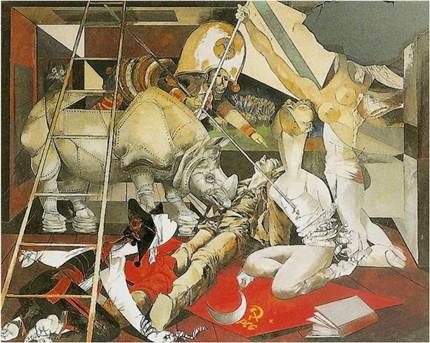AUSENCIAS EN EL EXILIO EN LA OBRA LITERÁRIA “EL JARDÍN DE AL LADO” DE JOSÉ DONOSO.
DOI:
https://doi.org/10.48075/rlhm.v10i15.11218Palavras-chave:
Ditadura Militar, Exílio, Ausências.Resumo
Na década de 70, o Chile viveu um golpe militar, sendo o então presidente Salvador Allende retirado forçosamente do poder, ficando em seu lugar o general Augusto Pinochet. Artistas da época tiveram que sair do país, muitos foram para a Espanha. José Donoso, em sua obra literária “El jardín de al lado”, destaca os sentimentos e os problemas enfrentados por um casal de chilenos logo após se mudarem para a Espanha, estes tendo que lidar com as ausências de sua terra natal. O personagem principal da obra é um escritor famoso em seu país Chile, porém não consegue ter sua obra publicada na Espanha, o que faz com que cresça nele o sentimento de ausência através de lembranças de sua vida no Chile, desde a infância até a idade adulta, além de ter que enfrentar problemas atuais como a falta de dinheiro e saudades de familiares próximos, juntamente com sua esposa. A década de 60 e 70 na América latina foi marcada pela ditadura militar, logo se observa na obra a presença de cidadãos de distintos países do continente como Brasil, Argentina e Uruguai. O exílio é cruel, tendo os cidadãos um espaço a ser preenchido pelas ausências, sendo que estes se vêm obrigados a sair de seus países de origem, deixando para trás uma vida para recomeçar outra em um lugar longínquo.
Palavras-Chave: Ditadura Militar; Exílio; Ausências; Chile.
Downloads
Publicado
Como Citar
Edição
Seção
Licença
Aviso de Direito Autoral Creative Commons
Política para Periódicos de Acesso Livre
Autores que publicam nesta revista concordam com os seguintes termos:
1. Autores mantém os direitos autorais e concedem à revista o direito de primeira publicação, com o trabalho simultaneamente licenciado sob a Licença Creative Commons Attribution que permite o compartilhamento do trabalho com reconhecimento da autoria e publicação inicial nesta revista.2. Autores têm autorização para assumir contratos adicionais separadamente, para distribuição não-exclusiva da versão do trabalho publicada nesta revista (ex.: publicar em repositório institucional ou como capítulo de livro), com reconhecimento de autoria e publicação inicial nesta revista.
3. Autores têm permissão e são estimulados a publicar e distribuir seu trabalho online (ex.: em repositórios institucionais ou na sua página pessoal) a qualquer ponto antes ou durante o processo editorial, já que isso pode gerar alterações produtivas, bem como aumentar o impacto e a citação do trabalho publicado (Veja O Efeito do Acesso Livre).
Licença Creative Commons
Esta obra está licenciada com uma Licença Creative Commons Atribuição-NãoComercial-CompartilhaIgual 4.0 Internacional, o que permite compartilhar, copiar, distribuir, exibir, reproduzir, a totalidade ou partes desde que não tenha objetivo comercial e sejam citados os autores e a fonte.


